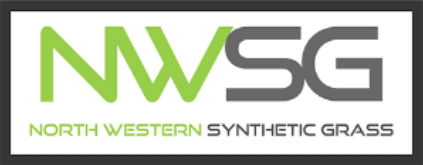As residents of Vancouver, Burnaby, Surrey, Langley, and throughout the Fraser Valley continue to prioritize environmental conservation and sustainable living, the role of landscaping choices becomes increasingly important in this quest for eco-friendly solutions. With the popularity of artificial grass installations on the rise, many homeowners are turning to this innovative and sustainable landscaping alternative in place of traditional lawns. The decision to invest in premium quality artificial grass not only results in a visually appealing and durable landscape but also offers a variety of environmental benefits that align with Canada's commitment to preserving our natural resources.
In an era of increasing water scarcity, energy consumption concerns, and habitat preservation, the advantages of artificial grass landscaping extend far beyond aesthetics, contributing significantly to sustainable and eco-conscious homeownership. With the growth of environmentally friendly practices in Vancouver and the Fraser Valley, it becomes essential for residents to understand the environmental benefits of artificial grass installations and how these features are aligned with the shared values of sustainable and responsible living.
Are you ready to embark on an enlightening journey into the world of artificial grass landscaping, uncovering the remarkable environmental benefits that this innovative solution provides for homeowners in Vancouver and surrounding areas? Join us as we delve deeply into the many facets of artificial grass installations, from water conservation to reduced energy consumption, and witness firsthand the powerful impact that this landscaping choice can have on the environment and the future of our beautiful Fraser Valley. Embrace the forward-thinking approach to landscaping that artificial grass installations bring to the table, and become an active participant in the global movement toward greater ecological balance and harmony.
Water Conservation: Artificial Grass Saves Precious Resources
One of the most significant environmental benefits of artificial grass installations revolves around water conservation. Traditional lawns require considerable amounts of water to maintain their appearance and health, while artificial grass eliminates this need, resulting in substantial water savings for homeowners and the community at large.
1. Lower Water Usage: Artificial grass does not require regular watering, thereby significantly reducing water consumption. With water scarcity becoming an increasing concern worldwide, installing artificial grass is a responsible landscaping choice for eco-conscious homeowners.
2. Reduced Burden on Infrastructure: By reducing the water demand, artificial grass installations alleviate pressure on local water supply infrastructure, facilitating more efficient water management and promoting sustainability in the community.
3. Consistent Appearance during Drought: As water restrictions become more frequent due to droughts and climate change, homeowners with artificial grass installations can maintain their lawn's pristine appearance and colour without the need for additional water resources.
Energy Savings and Emissions Reduction: The Environmental Edge of Artificial Grass
The maintenance and upkeep of natural lawns involve a range of activities that consume energy and produce emissions. Artificial grass installations address these concerns by providing an eco-friendly landscaping solution, requiring minimal maintenance and reducing greenhouse gas emissions.
1. Less Lawn Equipment: With artificial grass, the need for power-hungry lawn equipment, such as lawnmowers and trimmers, is greatly reduced. This translates into energy savings, lower emissions, and a smaller carbon footprint for homeowners.
2. Reduced Noise Pollution: Aside from reducing gas emissions, artificial grass installations also lead to decreased noise pollution, as there is no need for loud, gas-powered lawn equipment.
3. Long-Lasting and Low Maintenance: Artificial grass products are designed to be long-lasting and resilient, requiring minimal upkeep and significantly reducing the energy consumption associated with maintaining a traditional lawn.
Eco-Friendly Materials: How Artificial Grass Promotes Sustainable Landscaping
With an increasing focus on environmentally friendly materials in the landscaping industry, artificial grass installations have evolved to incorporate sustainable and recyclable components, further demonstrating their commitment to environmental conservation.
1. Recyclable Materials: Many artificial grass products available today are made from recyclable materials, such as polyethylene, polypropylene, and nylon. These synthetics can be repurposed and reused once the turf reaches the end of its lifespan, minimizing waste and contributing to a sustainable circular economy.
2. Reduced Waste: Installing artificial grass preempts the need for chemical treatment, reducing the amount of hazardous waste produced during lawn care. Additionally, since artificial grass is designed for longevity, the need for frequent lawn replacement is diminished, ultimately leading to less material waste.
Habitat Preservation and Stormwater Management: The Wider Environmental Benefits of Artificial Grass
The benefits of artificial grass installations go beyond water and energy conservation; they can also contribute to habitat preservation and improved stormwater management in local environments.
1. No Chemical Run-off: Artificial grass eliminates the need for fertilizer and pesticide application, preventing hazardous chemicals from leaching into local water systems and affecting aquatic habitats.
2. Enhanced Stormwater Management: Artificial grass installations are designed to encourage efficient stormwater infiltration, reducing surface water runoff and preventing erosion. This efficient drainage system supports the local ecosystem by mitigating the potentially detrimental effects of stormwater surges.
3. Conserving Natural Habitats: Choosing artificial grass has the potential to contribute to preserving natural habitats and ecosystems by reducing strain on the resources dedicated to maintaining traditional lawns.
Conclusion
The remarkable environmental benefits of artificial grass installations in Vancouver, Burnaby, Surrey, Langley, and throughout the Fraser Valley truly set this innovative landscaping solution apart from traditional lawns. With water and energy conservation, sustainable materials, and a focus on preserving local ecosystems, artificial grass has firmly established itself as a frontrunner in environmentally friendly landscaping.
By embracing the countless benefits of artificial grass installations and incorporating them into your property, you will be playing an active role in the pursuit of a more sustainable and responsible future for the Fraser Valley and beyond. It's time to invest in the green future of landscaping, where beautiful aesthetics go hand in hand with protecting our precious resources and natural environment. Choose North Western Synthetic Grass’ commercial and residential artificial grass and join the ever-growing community of eco-conscious homeowners who recognize the significant impact that even the simplest of landscaping decisions can have on a future that thrives in harmony with nature.







